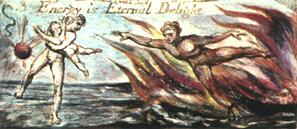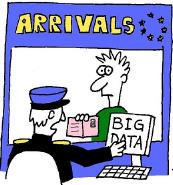
|
The ABC Study Guide, University education in plain English alphabetically indexed. Click here to go to the main index |

|
|
ABC Study Dictionary: More informationa page for material linked to from elsewhere |
|||
| Motivation | Incentive |
"If you motivate someone, you make them determined to do something". "An incentive is something that encourages you to do something" (Plain English Dictionary)
"Everyone
can achieve a lot if their heart is in it" (Parmjeet
Mand)
How do you create motivation to study? If you have ideas on this, please share them
One student found her motivation was greater when she worked with a friend.
Discussing your work with other people may stimulate some enthusiasm for it.
You could also look for new approaches that you could enjoy
The student who wrote the following sensitive reflection wants to be anonymous:
"The skills I think are most needed for autonomous learning are self motivation and drive. I feel I need more self motivation and that it is something I have always lacked. But the secret to finding it may be to realise that it could not be entirely true that I lack motivation and drive. I must have had it to some extent to get as far as I have. I need to develop the skills that got me this far. I have not had much help with this in the past. It is something I have developed myself. When I came to the university, the library tour helped me, because I was given lots of different approaches to do similar things. It showed me the advantages of flexibility. We were not given much encouragement to develop autonomously at school. A lot of the information and resources were just given to us. I have come to the conclusion that self-direction is something you develop on a daily basis. But it is not always something you realise you are doing."
Moderate anxiety may spur us on, but we only usually recognise anxiety when
it becomes debilitating. Fear can freeze us so that we are unable to study
- however hard we try. These are not strange or unusual responses to study.
In some way, at some time, they probably happen to everyone.
Study anxiety can feel as if it is about everything, but there are probably
particular areas that are causing most of the anxiety. Familiar areas that
often cause anxiety are
The same areas can be sources of
enjoyment. To get
anxiety problems into perspective, we can list the areas of study that we
enjoy, as well as those that cause us anxiety.
"For what purpose were the
passions implanted?"
(Mary Wollstonecraft)
In general terms, a class is any number of people or things
grouped
together, graded together or thought of separately from other groups.
Data is a word for special types of information.
John Stuart Mill speaks of
primitive data or original data which provides "the ultimate
premises of our knowledge". He is speaking as an empiricist, who
believes all knowledge is based on experience. Data here is any kind of
sensation that we can observe. He argues that
In computing, information
includes
programs
and data. Computer Data is the electrically stored information that
the programs operate on.
Statistical Data is the information to be used in
statistical analysis.
Research data is the information to be used in
empirical
research.
In statistics and research we describe data that has not been worked on as
raw data.
The original information that you gather yourself is
called
primary data and there are
many different ways
of gathering it.
Secondary data is data published in books and other
secondary sources.
See
data set -
data revolution and
big data
Analytics
Systematic
analysis of
data by a computer looking for meaningful patterns and also
finding ways to communicate those patterns effectively. For example, the
visits made to a website might be classified according to regions of the
world they came from and the results displayed in a graph.
An algorithm is a step-by-step list of directions that need to be followed
to solve a problem.
A recipe could be considered as a
formula if it just states the
ingredients:
Egg in hot water = boiled egg
Or as an algorithm if it states the steps:
Put egg in a saucepan of water
Boil water on fire for about seven minutes if you like it hard
Cool egg under cold water
Crack shell and eat contents
Algorithms are often used to describe how a computer might solve a
problem.
The algorithm to find the
area of a circle could be used as a computer program. This
example is quite simple, but logical, step by step, solutions to simple
problems can be complicated. The
Simple English Wikipedia
demonstrates this with examples of three algorithms designed to
sort a
stack of cards into numerical order. In each case, the algorithm is given,
and then a demonstration with a small stack of cards. Alongside each
example is an animation that shows how the cards move.
A simpler algorithm
Wikipedia says that "one of the simplest algorithms
is to find the largest number in an (unsorted) list of numbers."
Assume the first number is largest until proved wrong. Make a note of it.
Look at the second number. If that is larger, make that your note.
So on through the whole collection of numbers, changing the note whenever
you come across a larger number
When you have finished going through the numbers, your note will be the
largest number.
1935: Computable numbers
In June 1935,
Alan Turing tried to envisage a machine that would decide the
provability of any mathematical assertion presented to it. His paper "On
Computable Numbers, with an Application to the Entscheidungsproblem"
(January 1937) laid the mathematical foundations for modern computers.
Turing described an automatic machine which would read and manipulate
symbols on a tape through
algorithms. The software programs of today's computers
are long algorithms that tell the computer what to do, step by tiny step,
but at great speed.
and move on to
Big Data
Anxiety and
Enjoyment
"Energy is eternal a delight" (William Blake)

"A
passion
for the subject would help with
autonomous
learning.
Reading,
understanding
and
discussing
should be a
pleasure
(or fulfil a drive) rather than the work seeming arduous and dull. More
generally,
self-discipline, self-motivation,
time management, to-do lists, discussion
with other students and making time for
thought
would all be skills
relevant to autonomous learning." (Sharon Cottage)
Class
Data
"All science consists of data and conclusions from those data, of proofs
and what they prove".
Algorithms
See
Al'Khwarizmi in 820
Based on
Simple English Wikipedia
See BBC Magazine 16.11.2011
Why is Google in love with Bletchley Park?
-

Our algorithms suggest you will not buy enough
Group
A number of persons or things belonging or classed together, or forming
a whole, is described as a group. It can also be called a
class
or a set.
Networks
 Study
links outside this site
Study
links outside this site
 Andrew Roberts' web Study Guide
Andrew Roberts' web Study Guide
 Picture introduction to this site
Picture introduction to this site
 Top of
Page
Top of
Page
 Take a Break - Read a Poem
Take a Break - Read a Poem
 Click coloured words to go where you want
Click coloured words to go where you want
Andrew Roberts likes to hear from users:
To contact him, please
use the Communication
Form

